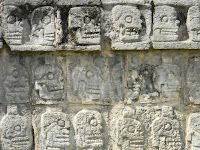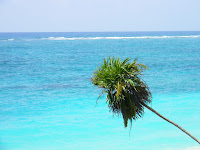The absolutely irrational and erroneous fears associated with the Ebola virus are driving me crazy. It is clear that the following are lacking in our country:
- basic geography comprehension or "geo-literacry"; knowledge beyond simplistically knowing that "Africa exists",
- understanding of who is at risk of catching Ebola (or other diseases) based on where current cases have been documented, and
- over logic and critical thinking skills.
Current documented cases of Ebola (source: US Center for Disease Control)
- Guinea (west Africa): 1553
- Liberia (west Africa): 4665 ... epicenter of outbreak
- Mali (west Africa): 1
- Sierra Leone (west Africa): 3896
- United States (North America): 4
- Nigeria, Senegal, and Spain have been declared "Ebola free"
Distance between Blackwell, Oklahoma and Dallas, Texas (location of closest confirmed case) is 304 miles. Distance between the location of the Blackwell teacher's location in Rwanda to Harper, Liberia (location of closest confirmed case) is 6862 miles. By traveling to Rwanda, the Blackwell teacher was actually 22.57 times further away from the closest Ebola case than her students are staying at home in Blackwell, Oklahoma.
Americans, and many within the western and/or developed world, have so many erroneous misconceptions of "Africa". Africa is the world's second largest continent (behind Asia). Africa has 54 countries recognized world-wide, with another 2 whose independence is partially recognized by a limited number of other countries. There are significant cultural, economic, language, religious, political differences between each of these countries and, often, within countries (reason for so many civil wars in the based few decades). Yet, despite this, so many Americans have too simplistic of an image in their minds when they think "Africa"...the comments in the news report bare this.
“This just concerns me, they would want to take the risk of allowing the teacher to go over there and then come back and come in not knowing if she is infected for not and put other kids at risk,” added Reba Newton.I don't know Ms. Newton. While I feel like her heart is prompting her comments, I can tell that her mind is devoid of the true complexities of the situation. If she fears "proximity" then she needs to realize that the risk of this teacher catching Ebola in Rwanda is BY FAR less than the risk of her children, even 304 miles away from Dallas, getting Ebola right there in Blackwell; yet such risk would be near impossible even if her children were actually in Dallas. I'm ashamed that the administration of Blackwell Public Schools even entertained the idea of asking the teacher to quarantine herself upon her return; they should have used FACTS to educate their local population. It's sad when school willfully choose to not support education.
Please, please, please people...think, think, think before acting and speaking. Reality depends on it.
Respectfully,
One who does not fear traveling the roads of land remote in an effort to learn and explore.
















































